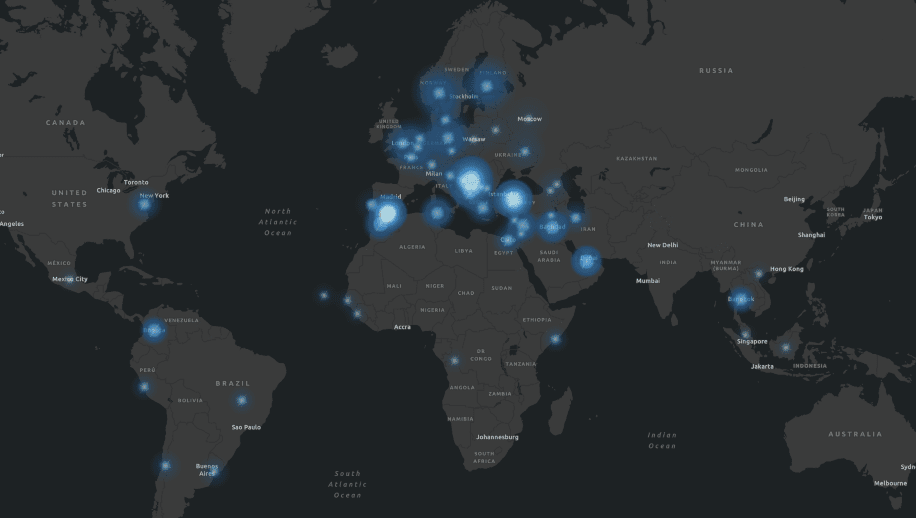
Image: Swedish Police
Swedish police have identified approximately 600 individuals engaged in organized crime aimed at Sweden from abroad, with some holding Swedish citizenship and operating from 57 different countries. According to the National Operational Department of the Swedish Police Authority (NOA), about 150 of these individuals are either in custody or internationally wanted.
“We have a serious and constantly evolving crime trend in Sweden where a large portion of crimes are ordered and directed from abroad. These individuals thus influence the crime we are now seeing in the country,” said Petra Lundh, National Police Commissioner.
The criminal actors have strategically positioned themselves internationally to boost their criminal activities and evade Swedish law enforcement. They are mainly involved in drug trafficking, violence, and money laundering, with additional crimes including arms trafficking and fraud.
In the past 20 years, high– and mid-level criminals running criminal endeavors in Sweden have established a strong presence in Spain and, more recently, in Turkey, Morocco, the UAE (Dubai), the Balkans, Tunisia, Iran, Iraq, Portugal, and several South American countries, police said.
Last year, Sweden registered over 350 successful or thwarted bombings and 363 shooting incidents (including 53 fatalities and 109 woundings)—the highest numbers in all of Europe, in a country that once used to have the least amount of firearm crime, per capita. In contrast, the other three Nordic countries registered only six fatal shootings combined in 2023.
As we previously reported, Swedish gang crime is not only a growing problem inside the country but has also affected its neighbors, leading Denmark to reinstate border checks and the Nordic countries to create a joint regional cooperation to address the problem.
“The reality right now is that not only Denmark but large parts of the Nordics are feeling the consequences of long-standing failed immigration and legal policies in Sweden, and we take that extremely seriously,” Danish justice minister Peter Hummelgaard told the media last month.
